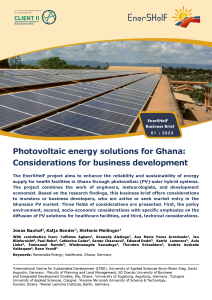Business Brief published
Click here to download our latest business brief:
Photovoltaic energy solutions for Ghana: Considerations for business development
EnerSHelF featured in Ghanaian Times
EnerSHelF Closing Event in Ghana
In the first week of March 2023, the project team met in Ghana for the closing workshop and visited the field sites. At the end of this month, the EnerSHelF project will end after four years of cutting-edge interdisciplinary research on improving and disseminating marketable PV-based energy solutions for health facilities in Ghana. The closing event was successful in disseminating the research results to relevant stakeholders.
The workshop started with presentations by the principal investigators of EnerSHelF – giving a short introduction to the project and welcoming the participants from academia, media, governmental agencies, industry, sectoral associations, health facilities, and international donors. It was followed by two parallel sessions and a moderated panel discussion with representatives of the project, the Ministry of Health, and the Ghana Health Service.
During the parallel sessions, the different work packages presented their research findings. One session aimed at technical considerations while the other targeted strategic considerations. A comprehensive report on the closing event will be published later on this website. You can also have a look at our policy briefs to learn more about project results.
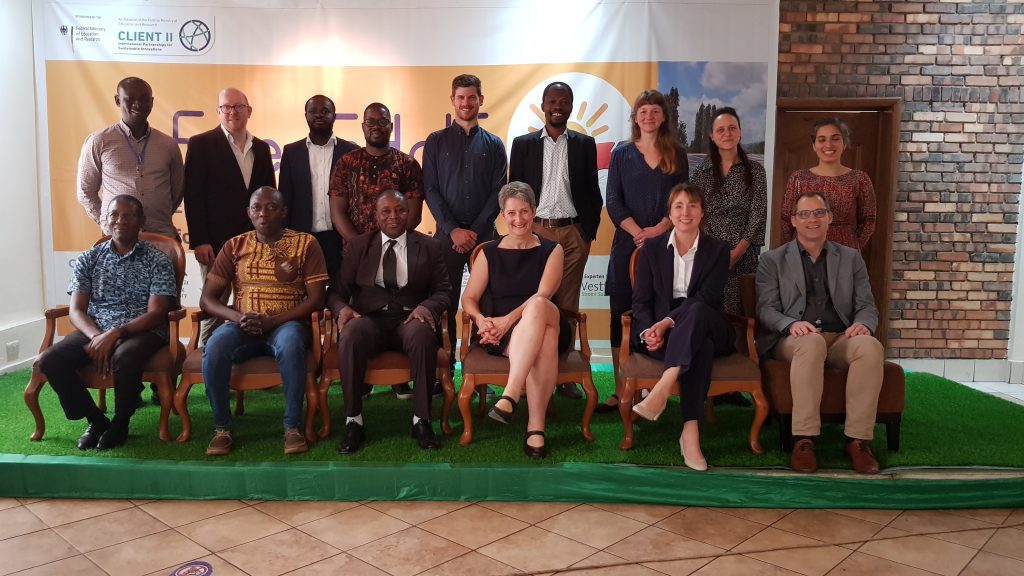
Two EnerSHelF policy briefs published
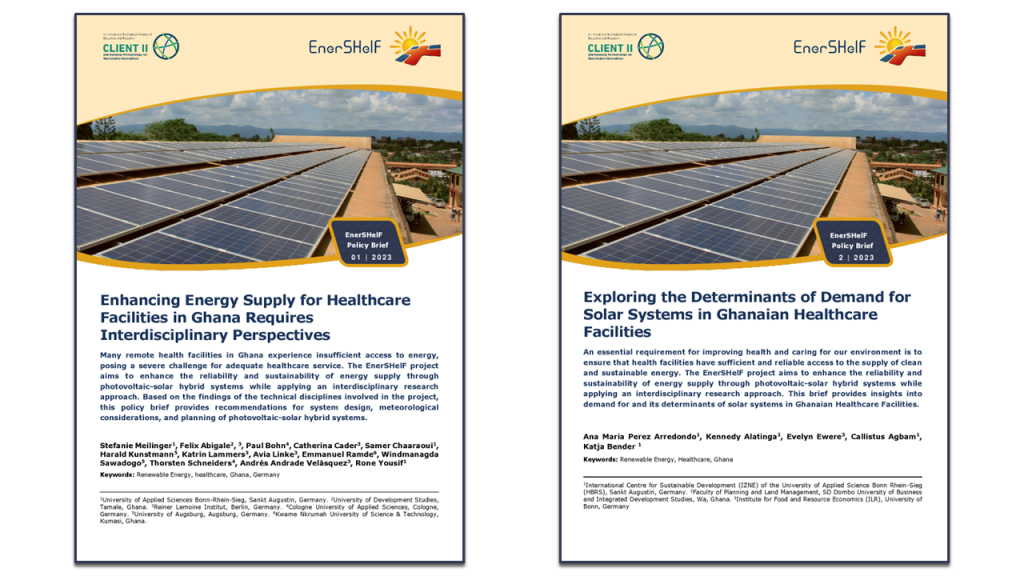
The EnerSHelF Project is finalizing its research results. In this process, two policy briefs have just been published. In a condensed form, they present findings and key recommendations derived from the research for relevant stakeholders and policy makers.
Enhancing Energy Supply for Healthcare Facilities in Ghana Requires Interdisciplinary Perspectives
In our first policy brief, our researchers grouped under work package 3 present an interdisciplinary, technical perspective on the requirements for enhancing energy supply for healthcare facilities in Ghana. The policy brief has different foci ranging from system design, meteorological considerations, and planning of photovoltaic-solar hybrid systems.
Exploring the Determinants of Demand for Solar Systems in Ghanaian Healthcare Facilities
Our second policy brief provides insights into demand for and its determinants of solar systems in Ghanaian Healthcare Facilities. The key insights and recommendations are based on 200 interviews conducted with health facility managers throughout Ghana. It unveils their perspectives on the potential of solar systems for healthcare services and their clinics.
Register now: EnerSHelF Closing Symposium
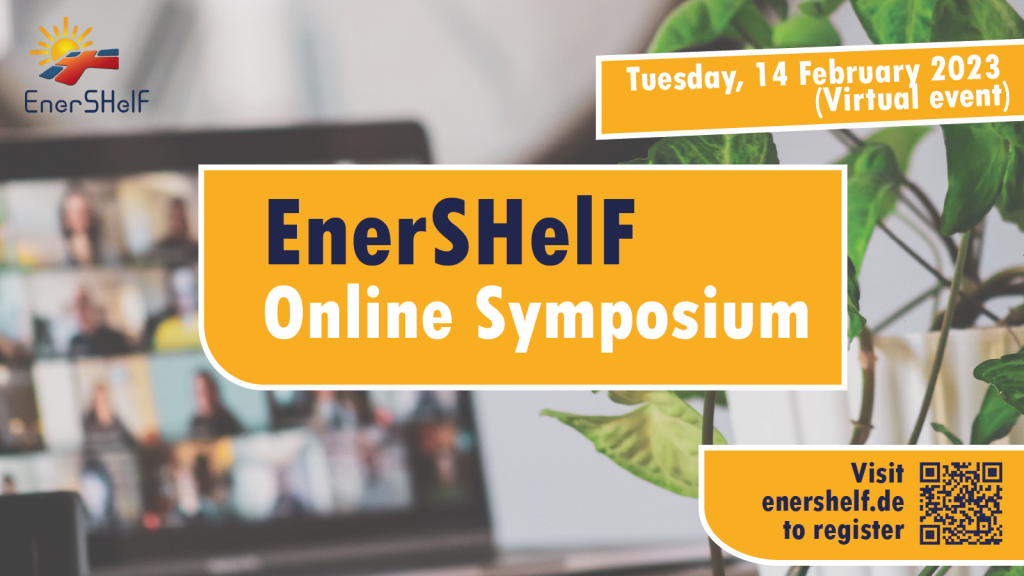
Tuesday, 14 February 2023 (Virtual event)
Since the project’s start in 2019, the team of EnerSHelF has been working on both technical and politico-economic questions to improve and disseminate marketable PV-based energy solutions for health facilities in Ghana. In March 2023, the project comes to an end, and we want to share our results and insights to stakeholders in the public and private sphere in our online symposium on
14th February 2023 10:00-15:00 CET.
Each individual work package will unfold their research with input from both our Ghanaian and German partners. The results are of interest to a broad audience, including researchers, private sector organisation, public authorities as well as international donor organisations working on either the expansion of Solar PV or on enhancing health services in Ghana and beyond. The registration link will direct you to the online registration via Webex where the symposium will be hosted.
Click here to download the agenda
Click here to register for the event
Insights into load profiles of Ghanaian health facilities
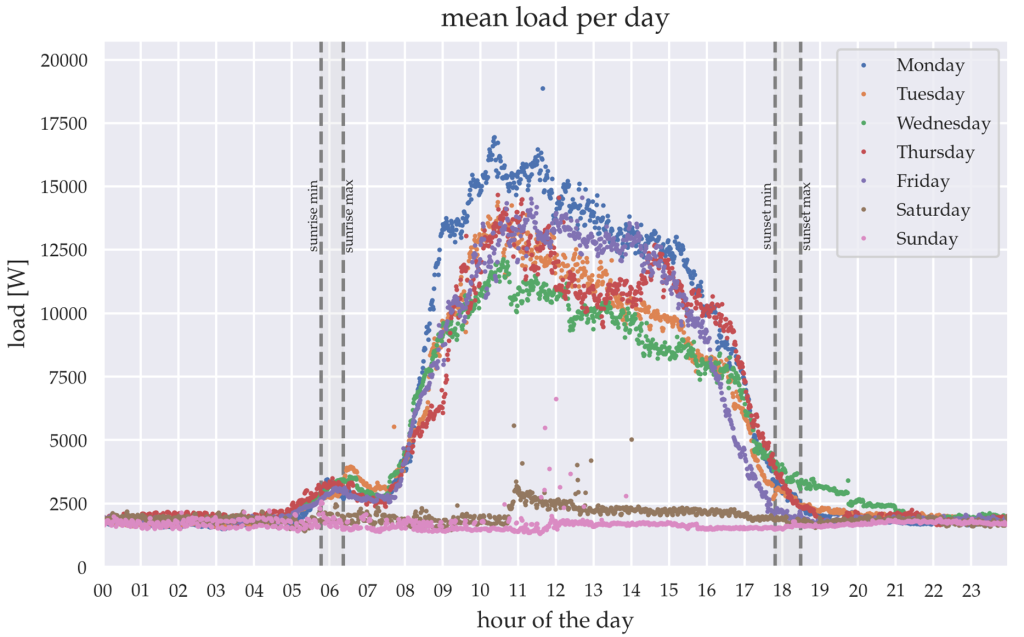
Continue reading Insights into load profiles of Ghanaian health facilitiesSamer Chaaraoui from the University of Applied Sciences Bonn-Rhein-Sieg is analyzing load data from the field sites of the EnerSHelF project. By analyzing the data, he can identify when and where electricity is used and what indication it has for planning PV-diesel hybrid systems for health facilities. In this article, he is given an insight into the identified load profiles and what they reveal. To ensure confidentiality, the load profiles have been anonymized.
Tracking interdisciplinary cooperation
Within work package 4, Jonas Bauhof from the University of Applied Sciences Bonn-Rhein-Sieg is analysing the interdisciplinary cooperation and exchange of the different work packages involved in the project.
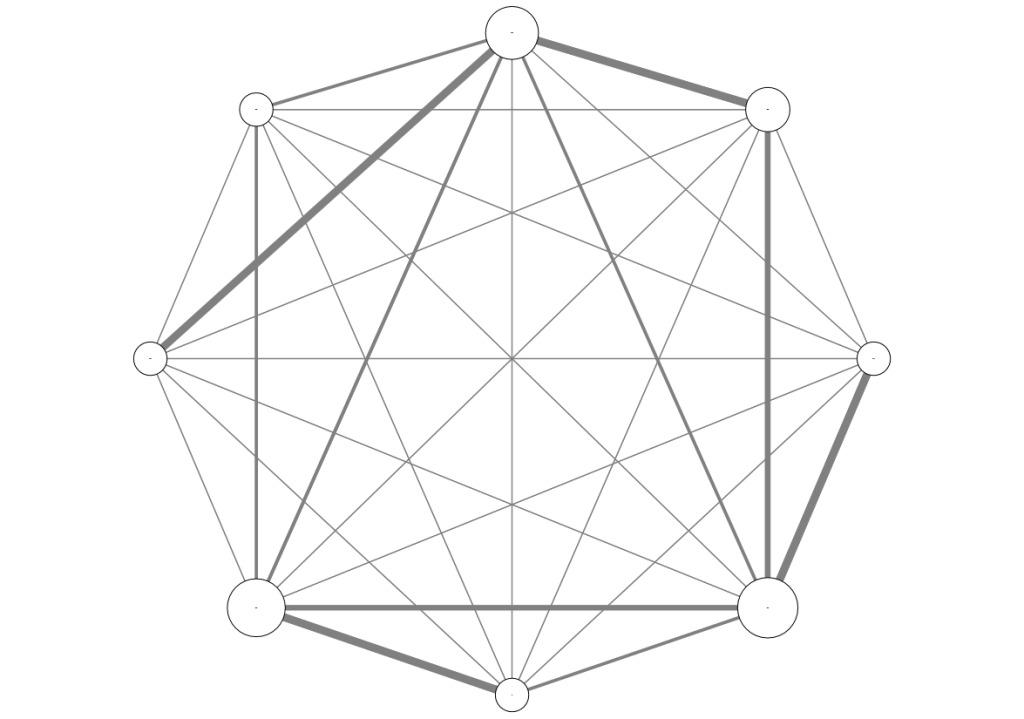
What is your role in the EnerSHelF project?
As a distinct feature of the EnerSHelF project, besides the disciplinary work of the technical, natural, and social sciences, we are also aiming to understand processes of cooperation between the different disciplines in such an interdisciplinary research setting. My role is to identify the areas of cooperation and possible barriers and enablers of interdisciplinary research. These “lessons-learned” can be beneficial for future projects with a similar set-up.
Continue reading Tracking interdisciplinary cooperationPre-print published:
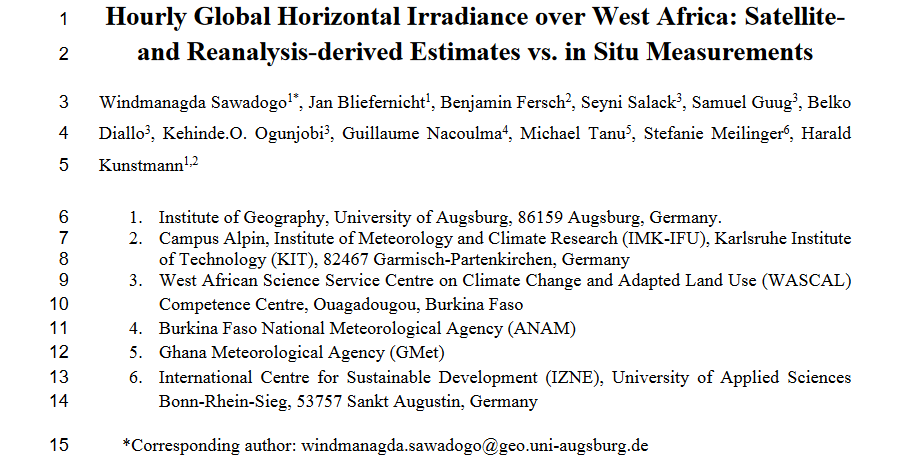
Continue reading Pre-print published:Windmanagda Sawadogo among other project members handed in a publication, which is now available as a pre-print
Development of an electrification and market introduction strategy
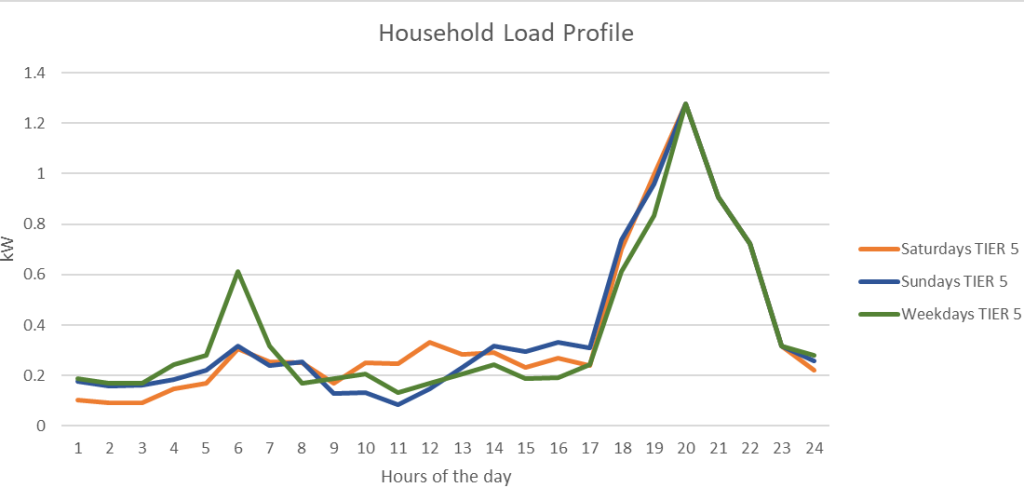
Interview with Katrin Lammers, Avia Linke & Andrés Andrade on the recent working steps of the Reiner Lemoine Institute for the EnerSHelF project.
In the past interview with your colleague Catherina Cader, she showed first maps visualizing the health centre distribution and electricity supply across Ghana. How have you developed the data since?
Since the last time, we continued to gain insights from our geospatial data by analysing it together with newer, more up-to-date datasets. We have now, for example, a better understanding of the number of hospitals more likely to need electrification, the types and sizes of communities that surround our hospitals, and the population that would be covered by their services. We have been compiling and processing these data, picking attributes and information from them that we think will be more relevant for our final visualization. For this, during the past months we have been thinking of and working on a concept for the development of a web map tool that should display not only the already mentioned datasets, but also our electrification strategy, in a clear and meaningful way.
Continue reading Development of an electrification and market introduction strategy